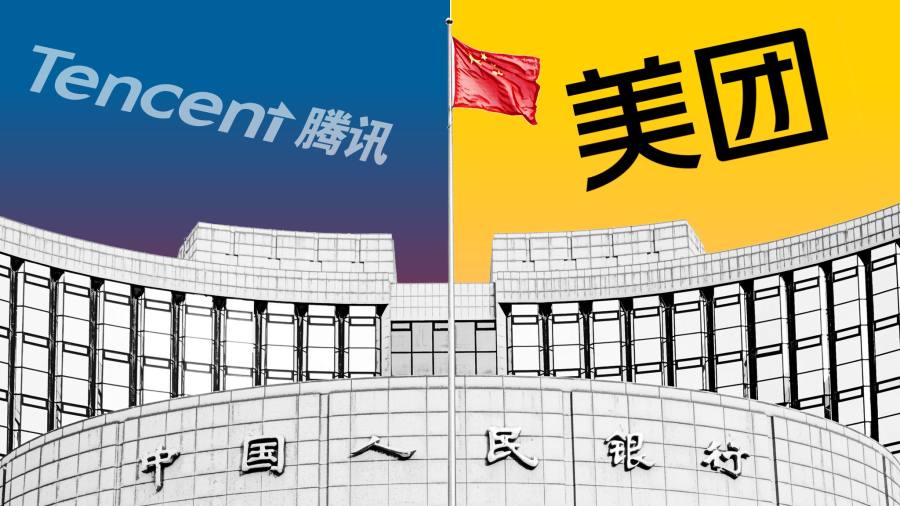China’s central bank is struggling to get more than a dozen major internet groups to comply with a December deadline to share users’ personal information with state-backed credit reporting companies.
The impasse over who should control access to the vast treasuries of internet groups data about their users comes as Beijing moves to tighten its grip on the country’s tech sector and consumer lending.
President Xi Jinping, who recently obtained a third five-year term as head of the Chinese Communist Party and military, has been determined to rein in China’s private-sector tech companies as part of a broader effort to build a more state-driven economy.
The People’s Bank of China ordered TencentMeituan and other major platforms to share user data, ranging from purchase records to travel history, with two state-backed groups, Baihang and Pudao, by early next month, according to people informed about the negotiations.
Baihang and Pudao would in turn provide a data feed to banks for a fee, to help them assess the creditworthiness of potential borrowers, but internet groups are resisting the arrangement, the people said.
Last year, the PBoC moved to ban online platforms from selling their user data directly to banks, citing concerns over possible misuse of personal information. But a central bank adviser said the practice continued because lenders were unwilling to pay the higher fees charged by Baihang and Pudao.
“Neither the platforms nor the banks have any incentives to follow an order that harms their business,” said the adviser, who asked not to be identified due to the sensitivity of the matter.
The central bank The order applies to internet groups seeking to work with commercial lenders to provide loans to individuals or small businesses.
“Even with a government as powerful as China’s, it never turns out that you just have one rule and then, like magic, the rule is just enforced and everyone obeys it,” said Karman Lucero, data security expert at Yale Law School. “It takes time for different regulators, institutions and companies to understand what compliance means and on top of that complexity you have people pushing back to slow things down.”
Some platforms have also spoken out against the fact that one of their rivals, Richard Liuit is JD.com owns a 25% stake in Pudao. “There is a lack of trust in Pudao’s neutrality,” said a Shanghai-based executive at one of JD.com’s competitors.
Many Chinese banks, especially smaller regional lenders, rely on internet companies’ troves of user data and analytics tools to identify creditworthy borrowers. According to public records, outstanding bank loans issued in conjunction with online platforms grew 22% last year compared to 2020, compared to just 12% overall loan growth.
“We’re not going to comply until everyone does,” said an executive at a Shanghai-based lender that works closely with platforms to issue consumer loans.
The lending boom has raised concerns that platforms monetizing customer data could undermine privacy or even threaten national security.
“How do I know who you’re selling data to when there’s so little oversight?” the central bank adviser said, adding that regulators are now focusing more on the security risks of mining consumer data rather than its potential economic benefits.
But a Beijing-based internet manager at one platform argued that his company had reliable safeguards for personal information and “very advanced” credit-scoring algorithms. “The government wants us [outsource] a service we can do well on our own,” he said.
Baihang and Pudao are run by former PBoC officials. “The PBoC wants to have more influence in regulating the sale and use of data,” Lucero said. However, a study by Renmin University in Beijing found that internet companies would experience increased costs of up to 8% after handing over data and analytics to credit reporting groups.
Michael Li, owner of a Shanghai-based company that analyzes credit scores, said: “While the government sees data as a valuable asset that cannot fall into the hands of internet tycoons, officials don’t have the ability to effectively manage the resource.. That means you risk killing the industry.
Additional reporting by Tom Mitchell in Singapore
